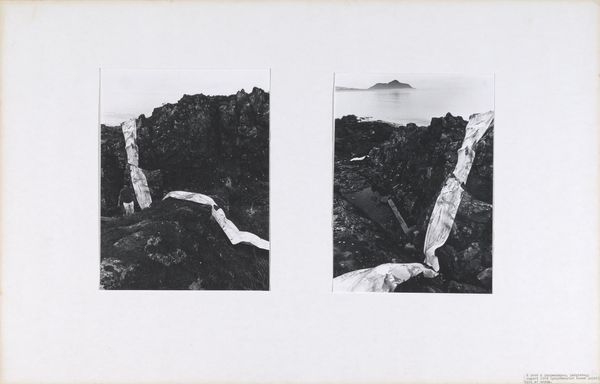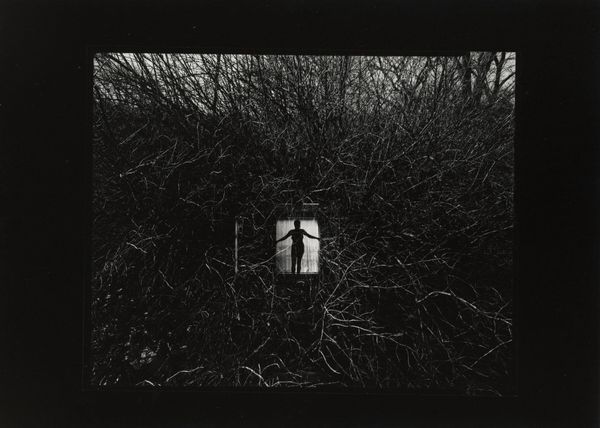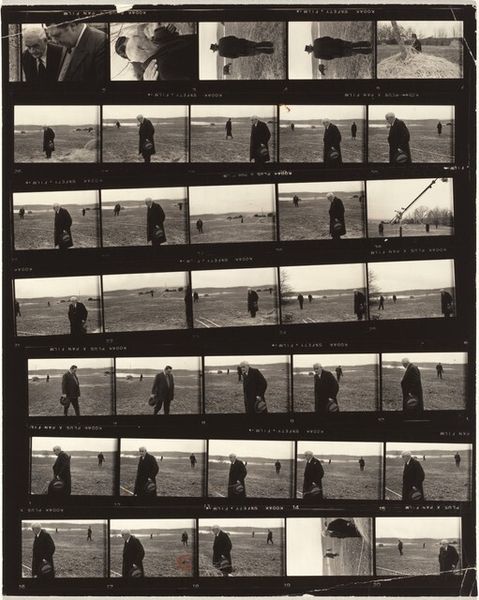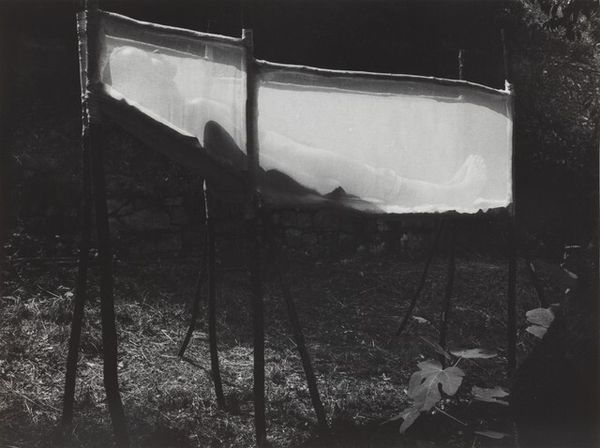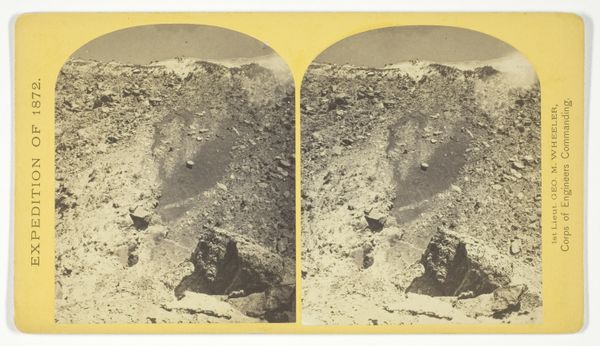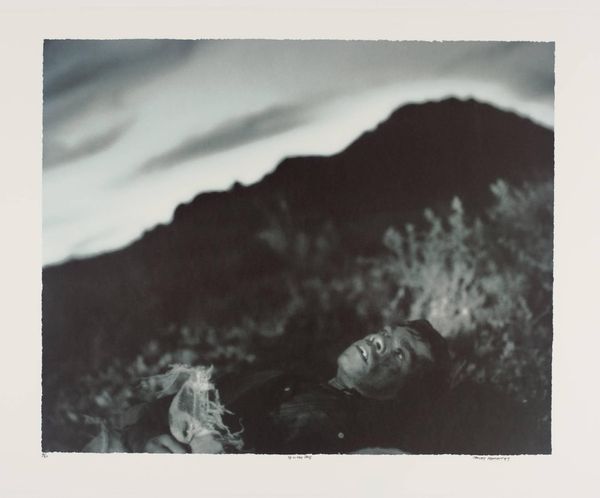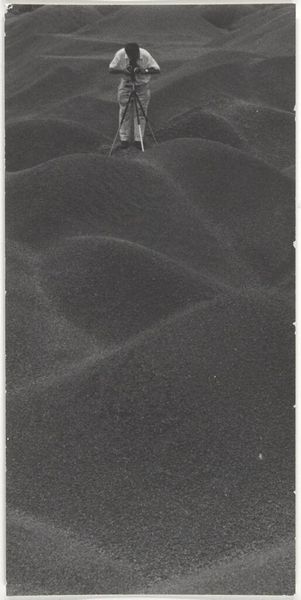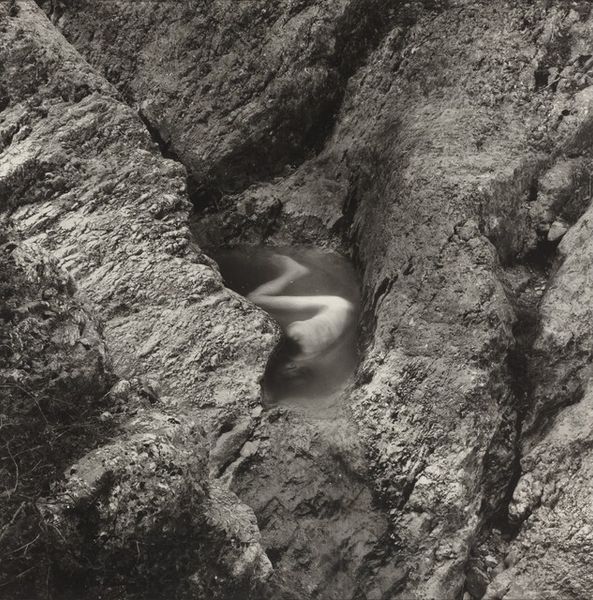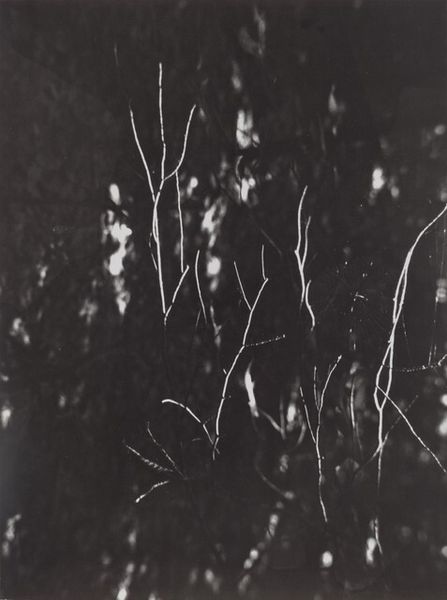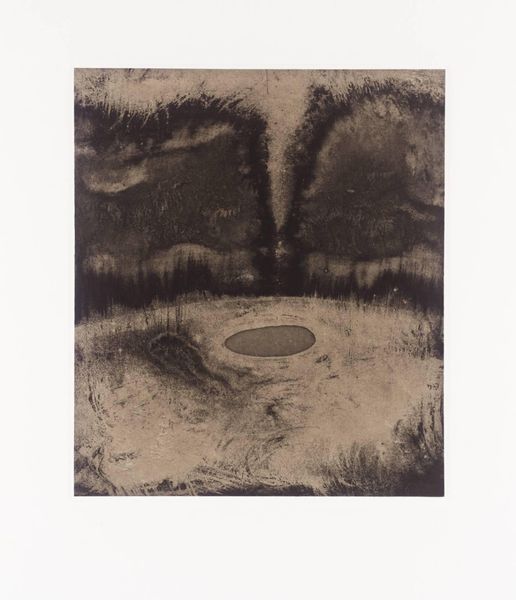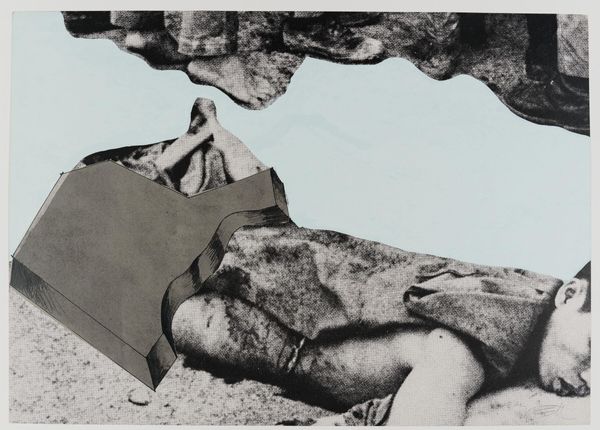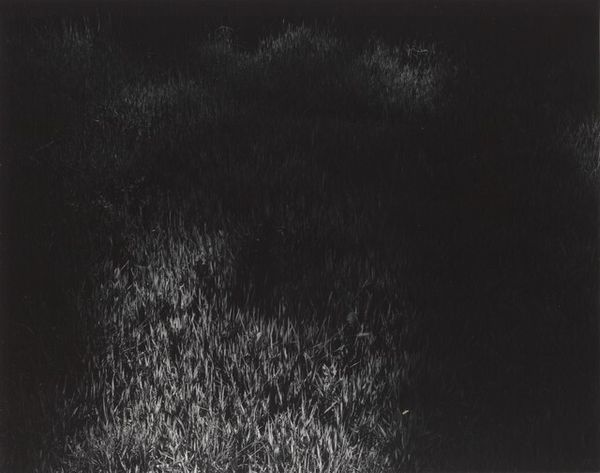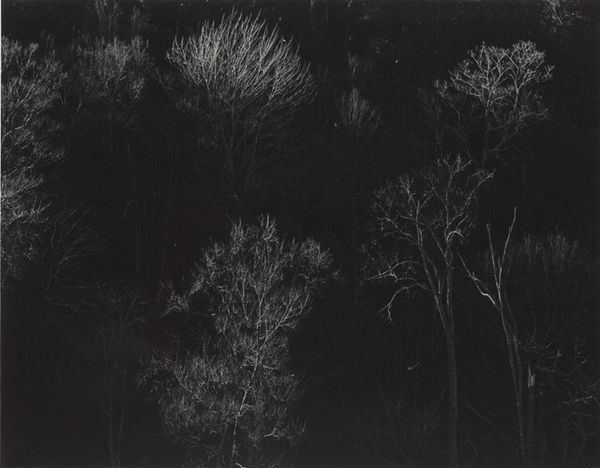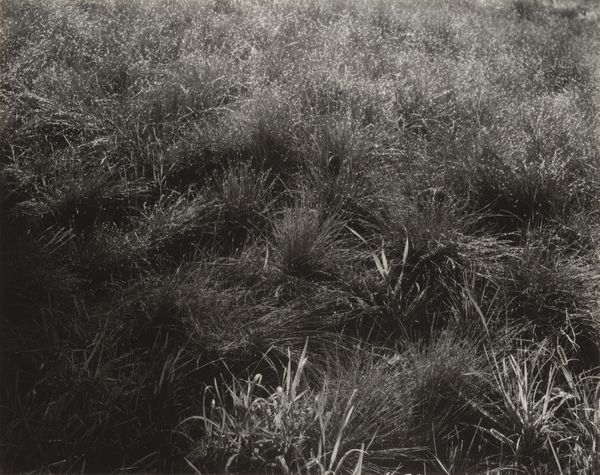
Dimensions: image (x 9 @): 467 x 467 mm frame (x 9 @): 477 x 477 mm overall (variable): 1619 x 1619 mm
Copyright: © The estate of Keith Arnatt | CC-BY-NC-ND 4.0 DEED, Photo: Tate
Editor: Here we have Keith Arnatt's "Self-Burial (Television Interference Project)," date unknown, a photographic grid of nine images. It feels very…staged, and a little unsettling. What do you make of it? Curator: The burial process, captured in stills, evokes ancient entombment rituals. Notice the slow disappearance, a kind of symbolic death. Do you think it's about literal death, or something else? Editor: Maybe the death of the self? It’s called “Television Interference Project” after all. Curator: Exactly. Television, a mass medium, overwhelms the individual. The self is buried under the weight of mediated reality. The visual language of the burial ground, contrasted with the modern attire of the figure, creates a powerful tension. Editor: So it’s a statement about the individual versus mass media? I hadn't thought about it like that. Curator: Indeed. It makes you think about how images can bury our own sense of self.
Comments
tate about 1 month ago
⋮
http://www.tate.org.uk/art/artworks/arnatt-self-burial-television-interference-project-t01747
Join the conversation
Join millions of artists and users on Artera today and experience the ultimate creative platform.
tate about 1 month ago
⋮
Arnatt was fascinated with works of art that are created in the natural landscape but leave no trace of their presence behind. ‘The continual reference to the disappearance of the art object suggested to me the eventual disappearance of the artist himself’, he wrote. This sequence of photographs was broadcast on German television in October 1969. One photo was shown each day, for about two seconds, sometimes interrupting whatever programme was being shown at peak viewing time. They were neither announced nor explained – viewers had to make what sense of them they could. Gallery label, April 2009
